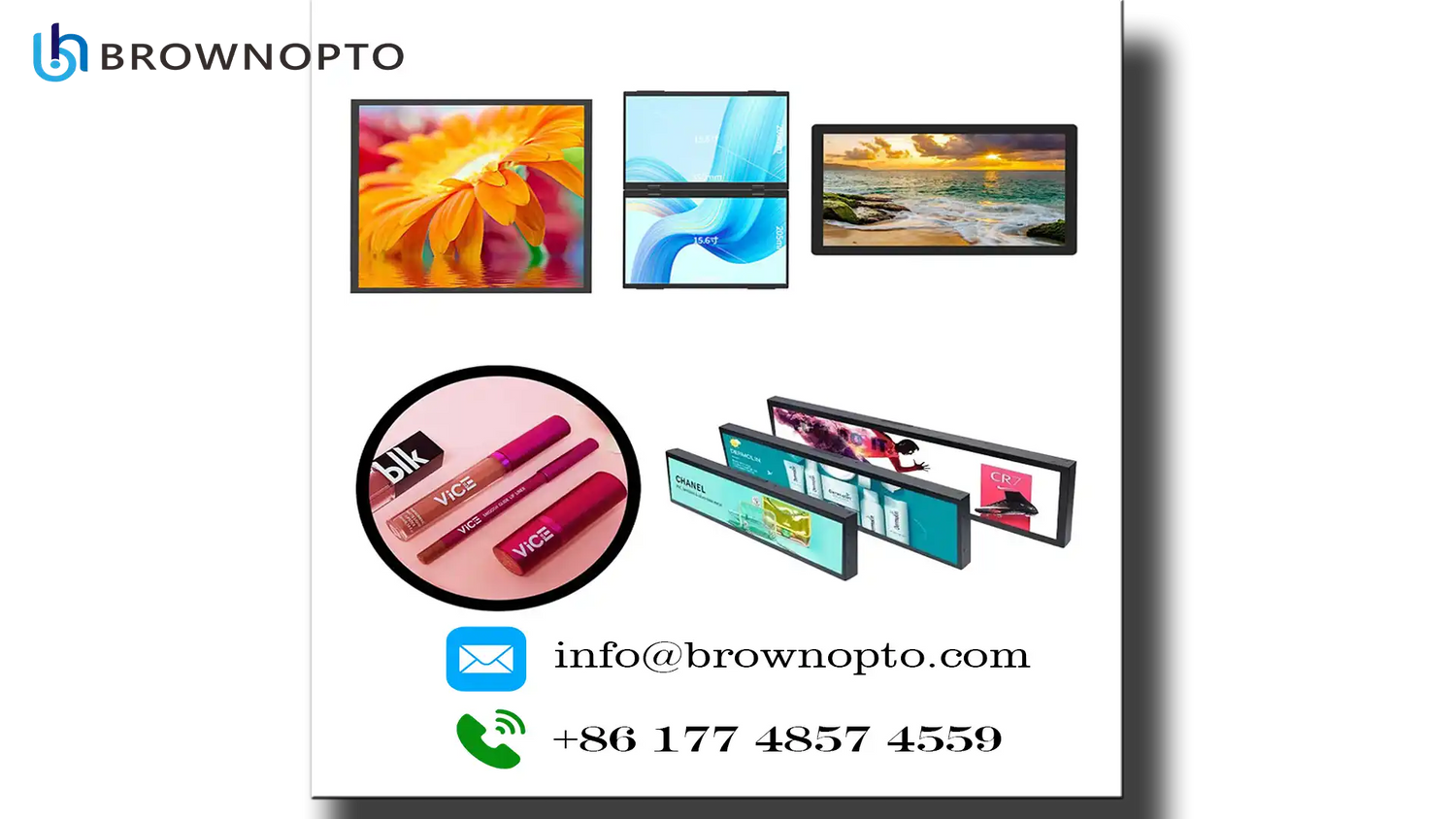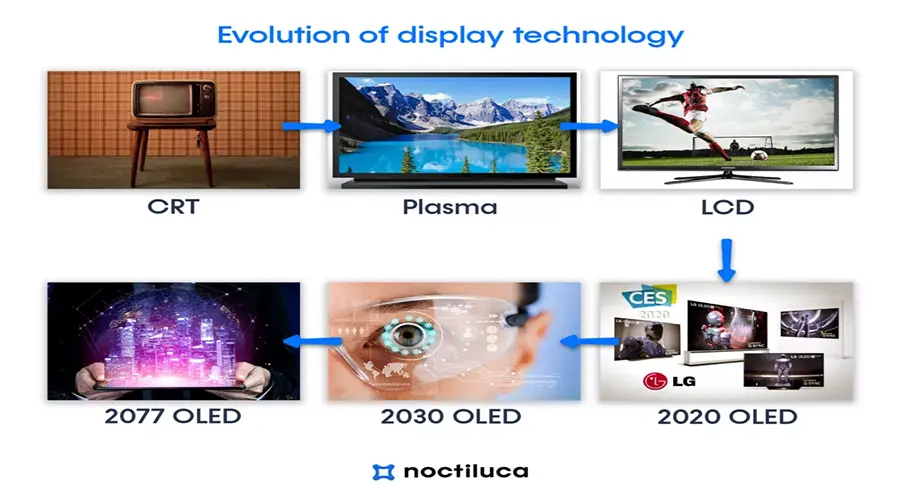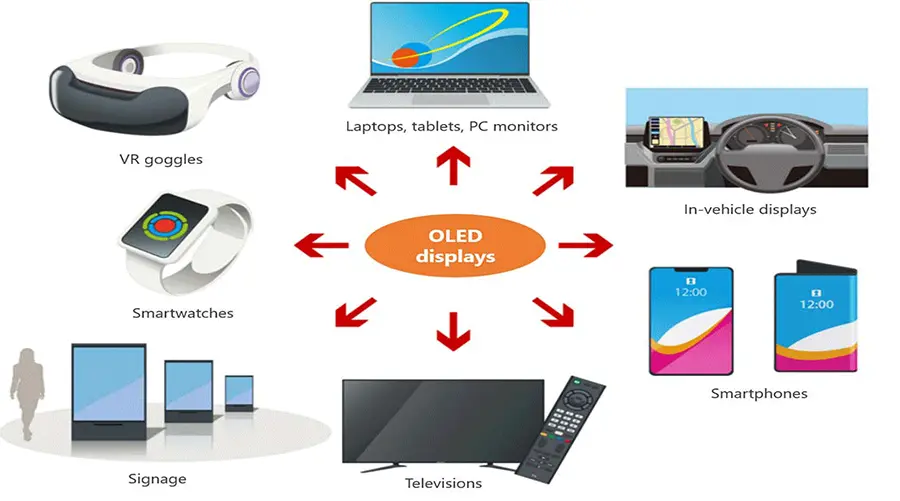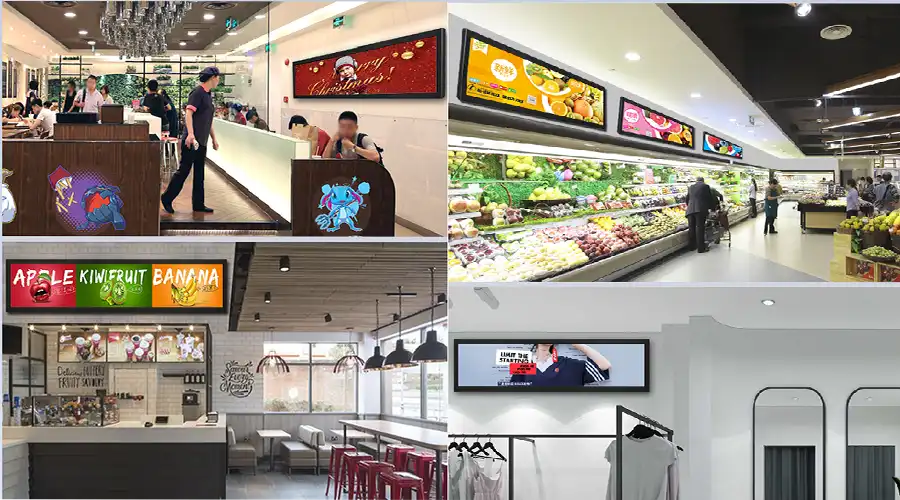In today’s fast-paced digital world, businesses and organizations are constantly searching for innovative ways to capture attention and deliver information. Among the latest display technologies, Bar LCD—also known as Stretched LCD, Bar Display, or Digital Signage—has emerged as a versatile and highly effective solution. With its unique ultra-wide aspect ratio and flexible installation options, the Bar LCD is transforming how brands communicate with customers, passengers, and audiences across many industries.
Table of Contents
- What is a Bar LCD?
- Key Features and Advantages
- Applications of Bar LCD Across Industries
- Retail and Supermarkets
- Transportation and Smart Mobility
- Restaurants and Food Services
- Public Spaces and Smart Cities
- Exhibitions and Entertainment
- Corporate and Office Environments
- Future Trends of Bar LCD Displays
- Frequently Asked Questions (FAQ)
- Conclusion
What is a Bar LCD?
A Bar LCD, also called a Stretched LCD or Bar Display, is a special type of liquid crystal display with an ultra-wide or non-standard aspect ratio. Unlike traditional 16:9 or 4:3 displays, these screens are designed to be much longer in width compared to their height. This unique format makes them ideal for spaces where conventional displays would not fit or where an elongated display surface is required.
Bar LCDs are widely used in digital signage, where delivering clear, eye-catching information is essential. They support both static and dynamic content, including videos, images, animations, and real-time data feeds.

Key Features and Advantages
- Unique aspect ratio: Ultra-wide design fits narrow or unconventional spaces.
- High resolution & brightness: Provides sharp visuals even in bright lighting conditions.
- Flexible installation: Can be mounted horizontally, vertically, or combined as video walls.
- Remote content management: Integrated with digital signage systems for centralized updates.
- Durability: Designed for long operational hours, suitable for 24/7 environments.
Applications of Bar LCD Across Industries
1. Retail and Supermarkets
Bar LCDs are transforming the way retailers communicate with customers. Their elongated design is perfect for shelf-edge displays, checkout counters, and product showcase areas. Retailers use them to promote deals, display dynamic pricing, and highlight new arrivals. This creates an engaging shopping experience and can significantly boost sales conversions.

2. Transportation and Smart Mobility
Transportation hubs such as airports, train stations, and bus terminals rely on clear, real-time communication. Bar LCDs are widely used to display schedules, departure times, arrival updates, and safety information. Inside buses, trains, and subway cars, stretched displays provide route details, advertising, and public announcements.

3. Restaurants and Food Services
In the food and beverage industry, Bar LCDs serve as modern menu boards. Their slim design fits perfectly above counters, on walls, or even integrated into furniture. They display menus, daily specials, promotions, and order status updates. For quick-service restaurants, these displays improve order efficiency while enhancing the dining experience.

4. Public Spaces and Smart Cities
Public institutions such as hospitals, banks, government offices, and community centers use Bar LCDs for wayfinding, announcements, and queue management. In outdoor environments, they are integrated into smart bus stops, parking systems, and city information boards to deliver real-time updates.

5. Exhibitions and Entertainment
Museums, galleries, and exhibition halls use Bar LCDs to present educational content alongside exhibits. Entertainment venues such as cinemas, karaoke bars, and gaming arenas deploy them for event schedules, promotions, and immersive experiences. Their sleek design makes them blend seamlessly into modern interiors.

6. Corporate and Office Environments
In corporate settings, Bar LCDs are used for reception areas, meeting room signage, and internal communication boards. They display welcome messages, corporate news, meeting schedules, and important announcements. This not only improves communication but also projects a modern, tech-savvy brand image.

Future Trends of Bar LCD Displays
The future of Bar LCDs is closely tied to emerging technologies such as Artificial Intelligence (AI), Internet of Things (IoT), and interactive solutions. Intelligent displays will be able to deliver personalized content, integrate with sensors, and adapt to user behavior. Additional trends include:
- AI-driven content: Targeted advertisements and real-time analytics.
- IoT integration: Displays connected to smart city infrastructure.
- Energy efficiency: Eco-friendly designs and low-power consumption.
- Interactive possibilities: Combining stretched displays with touch technology or AR overlays.
Frequently Asked Questions (FAQ)
What is the difference between a Bar LCD and a traditional display?
A Bar LCD has a stretched or ultra-wide aspect ratio, making it suitable for narrow spaces and unique applications where traditional 16:9 displays cannot fit.
Can Bar LCDs be used outdoors?
Yes, with proper weatherproofing and high-brightness panels, Bar LCDs can be deployed in outdoor environments such as bus stops, transportation hubs, and public signage systems.
How are Bar LCDs controlled?
Most Bar LCDs are integrated with digital signage software that allows remote content management, scheduling, and real-time updates via cloud-based systems.
Are Bar LCDs energy-efficient?
Many modern Bar LCDs are designed with energy-saving LED backlighting and low-power operation, making them suitable for 24/7 usage.
Conclusion
Bar LCDs, also known as Stretched LCDs or Bar Displays, are redefining digital signage with their unique form factor and versatile applications. From retail shelves and restaurants to transportation hubs and corporate offices, these displays are creating new opportunities for communication and branding. As technology advances, Bar LCDs will continue to play a vital role in shaping the future of advertising, information sharing, and customer engagement.
Whether you are a retailer, a transportation operator, a restaurateur, or a corporate leader, investing in Bar LCD technology can elevate your communication strategy and help you stand out in a competitive market.





Leave a comment
This site is protected by hCaptcha and the hCaptcha Privacy Policy and Terms of Service apply.